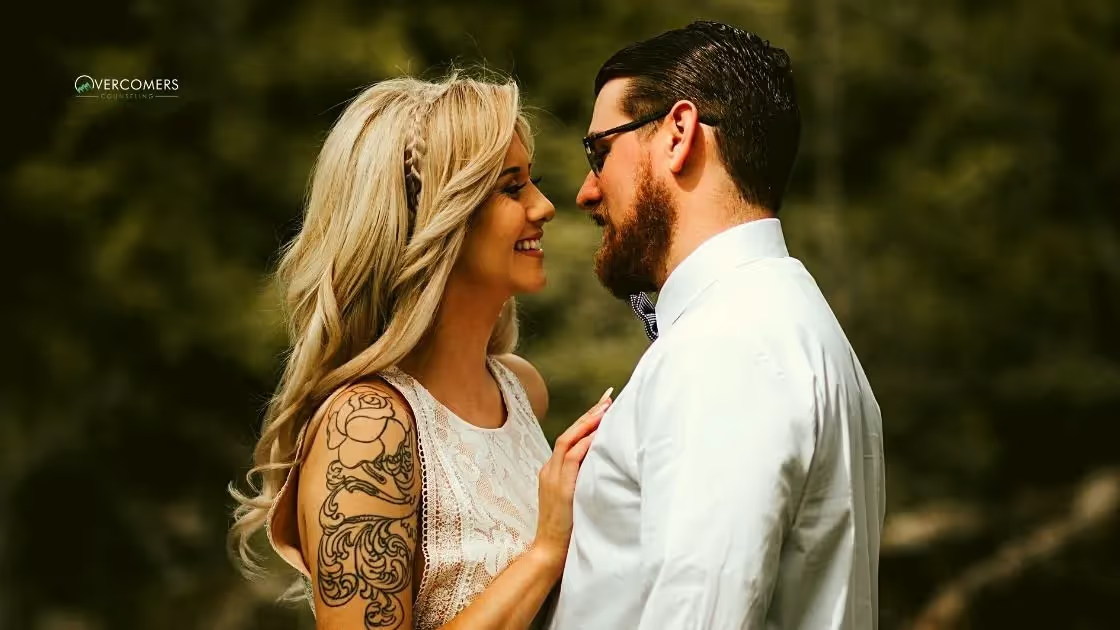Sometimes people take their spouses for granted. After all, we know them so well and we're used to being around them. But being a good companion to your...

Sometimes people take their spouses for granted. After all, we know them so well and we're used to being around them. But being a good companion to your spouse is important - it can make or break your relationship. Here are some tips on how to be the best spouse you can be.
Respect is a crucial foundation in any lasting relationship, and it works both ways. While being married means you're close, it doesn’t mean invading your spouse's personal space or privacy whenever you feel like it. Everyone, even your spouse, needs time to recharge, so if they want some time alone, it’s not a sign of disinterest—it’s simply a need for space.
However, if your spouse starts consistently withdrawing from the relationship, it may signal something deeper that requires a conversation. Respecting their privacy and giving them personal space is essential for being a supportive and understanding partner.

To be a good companion to your spouse, avoid criticizing them in front of others. Public criticism can deeply hurt your spouse’s feelings and make them feel inadequate. Instead, focus on their positive qualities to help build their confidence and make them feel valued. If you need to address something negative, do so privately to avoid making them feel put down in front of others.
Being a good companion to your spouse is truly tested during tough times. When things are going well, it's easy to be supportive, but adversity reveals the depth of your commitment. During these moments, you must be their rock and foundation—someone they can rely on no matter what. Being a good companion means being there for them, offering support and understanding, especially when it's difficult. So, remember, during challenging times, that's when your spouse needs you the most.
To be a good companion to your spouse, it's important to give them time for themselves without feeling guilty. Having time apart allows both of you to miss each other and appreciate one another, and it can be used for hobbies, work, or simply taking a break. Feeling guilty about taking time for yourself can lead to resentment and harm the relationship. A healthy relationship requires balancing togetherness and independence, so learning how to respect each other's space is key.
Being a good companion to your spouse involves making time for each other, even when life gets busy. This might mean setting aside time each week to talk or planning regular date nights. It’s easy to get caught up in daily routines and forget to nurture your relationship, but making time for each other strengthens your bond. By prioritizing time together, you create a more connected and fulfilling relationship. Don’t wait for the perfect moment—make time for each other from the start, and your relationship will thrive.

Good communication is essential in any healthy relationship, especially in marriage. When you share your life with someone, it's important to openly express your thoughts, feelings, and concerns. Without clear and honest communication, misunderstandings can arise, leading to conflicts. To maintain a strong relationship, it's crucial to ensure that you are always communicating effectively with your spouse.
If you're not sure how to do that, here are a few tips:
If you're having difficulty being a good companion to your spouse, it's important to seek help if necessary. There are plenty of resources available to help you strengthen your relationship. You can talk to a counselor, read books on marriage, and relationship experts, or even go to workshops or retreats.
The content in this blog post should only be used for informational purposes. This content should not be used as a substitute for medical advice from a licensed professional.
Being a good companion to your spouse takes some effort, but it's worth it. It's important to make time for each other, communicate openly and honestly, and seek help if necessary. If you put in the work, you can have a healthy and happy marriage and a good companion for your partner.
The first step is to take responsibility for your actions and apologize. Next, be honest with your thoughts and feelings. Show that you're willing to change and be a better partner. Finally, set some Trust is essential for a happy and healthy marriage. It allows couples to feel safe and secure with each other. Without trust, couples may feel anxious, resentful, and disconnected from one another. to help prevent future hurt. Remember to be patient as it takes time to rebuild trust.
A licensed mental health professional guides couples through the EFT process, helping them navigate their emotional experiences and fostering positive change. The therapist facilitates understanding and connection between partners.
Yes, trust can often be rebuilt if it is damaged in a relationship. This process may take some time and effort, but it is possible to regain trust.
If you're struggling with abandonment issues, it may be helpful to seek professional support. Consider consulting a mental health professional if your feelings of fear or insecurity are impacting your relationships or daily functioning. No matter what, it's important to remember that seeking help is a sign of strength. Taking this step can be an important part of overcoming abandonment issues and improving overall well-being.
Handling conflicts effectively involves:
Couples who undergo EFT often experience improved emotional connection, reduced conflict, and a stronger secure attachment. The change process promotes healthier interactions and greater satisfaction in the relationship.